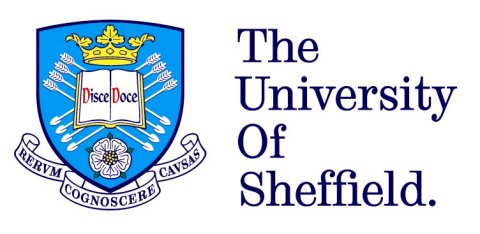Study MSc Physiotherapy in the UK
Physiotherapy Pre-Registration Courses in the UK
The MSc Physiotherapy (pre-registration) is a full-time program that is normally completed over two years and gives you an accelerated route into the profession.
Following successful completion you will be eligible to apply for registration with the Health and Care Professions Council; registration is required if you wish to practice as a Physiotherapist in the UK or in Canada. During the program, you will undertake practice placements to give you the hands-on experience you need to begin your career. You will also study the sciences and be taught practical techniques that underpin physiotherapy.
Applying for a Physiotherapy course?
SI-UK is here to help with your Physiotherapy application. Get started today and arrange your free consultation at an SI-UK office or through a phone call.
Careers in Physiotherapy
Physiotherapy graduates will find roles at private practices or companies, the NHS or with sports teams and at sports centres. Specific roles will see you tend to the elderly while undertaking orthopedics, obstetrics, pediatrics and sports medicine. For students that already have an undergraduate degree (preferably in Science) and would like to become licensed physiotherapists, they will need to complete an MSc in Physiotherapy.
MSc Physiotherapy (Pre-Registration) Entry Requirements
You will have a completed recent honours degree (or higher) with an average of at least 70%. This will have been awarded within the last 3 years in a Human Biological or Behavioural Science, Sports Science or Allied Health program. Human Sciences/Anatomy and Physiology must have been included within the final year of your program.
To support masters level studies you will bring, or demonstrate an ability to develop during the initial module of the program, knowledge and understanding of the following that will be the intellectual base on which you will build:
- An Honours level knowledge of human anatomy, physiology and psychosocial sciences.
- An Honours level understanding of research methods and an ability to critically evaluate research findings.
- The ability to undertake, write up and present an honours-level research study.
- Evidence of e-learning, group learning and self-directed study skills.
- An insight into physiotherapy, either through work experience and/or by researching the profession.
Please note that entry requirements vary for each UK university and if your grades are lower than this there is a possibility you can still enter the programme.
Where can I study a Master in Physiotherapy in the UK?
Here are the UK universities that offer the MSc Physiotherapy course that SI-UK has sent the most Canadian and US students to:
University of Central Lancashire
Manchester Metropolitan University
To learn more about studying a Master in Physiotherapy in the UK, speak to an SI-UK consultant for a free consultation.
Returning to Canada with a Physiotherapy degree from the UK
Physiotherapy is a regulated profession in Canada. To work as a physiotherapist in Canada, students must register with The Canadian Alliance of Physiotherapy Regulators (CAPR) in the province they wish to work in. UK qualifications are checked by the CAPR’s Educational Credentials and Qualifications Assessment before students take the Physiotherapy Competency Exam (PCE). The PCE comprises a written test and a clinical exam to assess both a student’s knowledge and their practical application. Provincial regulators may have further requirements beyond CAPR. For more information about CAPR and returning to Canada with your degree, visit our dedicated page.
Working in the UK
After completing a Physiotherapy degree, students must register with the Health and Care Professions Council (HCPC) to practice as a physiotherapist. Many physiotherapy graduates are employed by the NHS, but students can also enter private practice or social care. The industry, sport and education sectors also provide potential career paths for physiotherapists. Graduates will work with patients of varying ages but tend to specialize in an area such as sports injuries or stroke recovery or work more generally in a hospital or clinical setting.
Credentialling and the PCE
For any students whose international qualification does not meet the requirements to be assessed as ‘substantially equivalent’ to Canadian programmes, Internationally Educated Physiotherapy Bridging Programmes are available. Physiotherapists in Canada are required to have completed 1025 hours of clinical practice before registration. This is slightly higher than the 1000 hours required in the UK, so students should make sure to make up these extra hours during their studies.
Studying MSc Physiotherapy (Pre-registration) in the UK
For more information about the MSc Pre-registration Physiotherapy program, you can view Queen Margaret University's video, recorded at a recent online open day, on studying physiotherapy in the UK and more information about the MSc PR Physiotherapy program at QMU.
Apply to study MSc Physiotherapy
If you are interested in learning more about studying Physiotherapy in the UK, arrange your free consultation today. Don't forget the Premium Service will guarantee you at least one offer from a UK university!



 Events
Events News
News



























